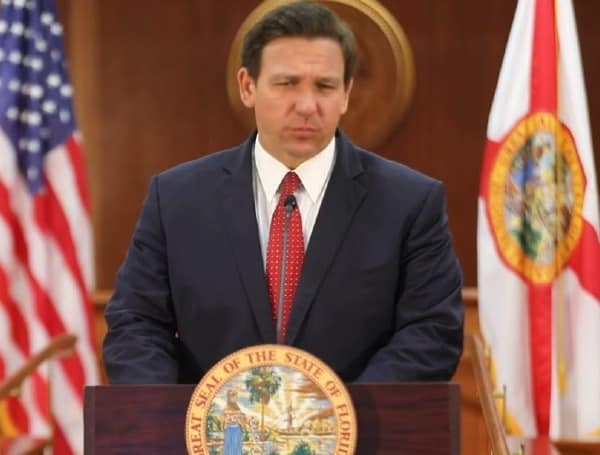Today, Governor Ron DeSantis held a roundtable with renowned doctors and epidemiologists to discuss Big Tech censorship and the COVID-19 pandemic. Today’s meeting follows the recent decision by Google to remove video footage of a previous roundtable the Governor held with these experts from its video-sharing platform, YouTube.
“YouTube’s decision to remove the video of our previous roundtable is just another example of unabashed overreach and bias by Big Tech,” said Governor DeSantis. “Silicon Valley and the corporate media have drawn a line in the sand: they don’t care about the facts. They only care about pushing their agenda and will do so by whatever means necessary, the truth be damned. That’s why we are taking action here in Florida to hold Big Tech accountable and call out their hypocrisy.”
The following individuals participated in the roundtable with Governor DeSantis:
- Dr. Scott W. Atlas, MD, Robert Wesson Senior Fellow in health care policy at the Hoover Institution of Stanford University
- Dr. Jay Bhattacharya, professor of medicine at Stanford University and research associate at the National Bureau of Economic Research
- Dr. Martin Kulldorff, PhD, biostatistician, epidemiologist, and professor of medicine at Harvard Medical School
“There’s nothing more dangerous than being able to censor what is said in a country because then you are simply not ever going to even hear the truth. And you are entering into a phase of countries that we used to criticize severely like the USSR, like communist China…I mean, this is almost the end of our civilization if we have this sort of censorship, I’m afraid,” said Dr. Scott Atlas.
“For science to work, you have to have an open exchange of ideas…If you’re going to make an argument that something is misinformation, you should provide an actual argument. You can’t just take it down and say, ‘Oh, it’s misinformation’ without actually giving a reason…Let’s hear the argument, let’s see the evidence that YouTube used to decide it was misinformation. Let’s have a debate. Science works best when we have an open debate,” said Dr. Jay Bhattacharya.
“We need to have debates, rather than censoring…When we do censoring and slandering, even if we are willing to continue to speak out, there are many other scientists that I know, including junior scientists, who do not want to speak out because they see what’s happening to us. They don’t want to have to go through the same thing. So, we really need a debate,” said Dr. Martin Kulldorff.
Check out our ‘Cancel Corner‘, a section we launched in February, where we report on the latest Cancel Cases and stories from around the globe.
Support journalism by clicking here to our gofundme or sign up for our free newsletter by clicking here.
